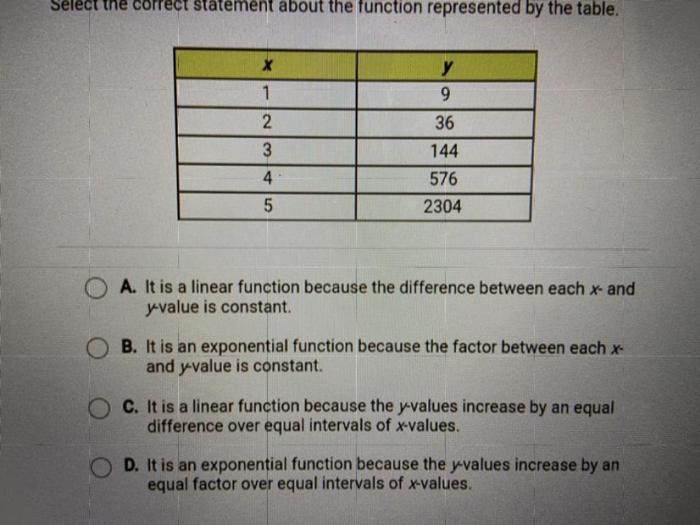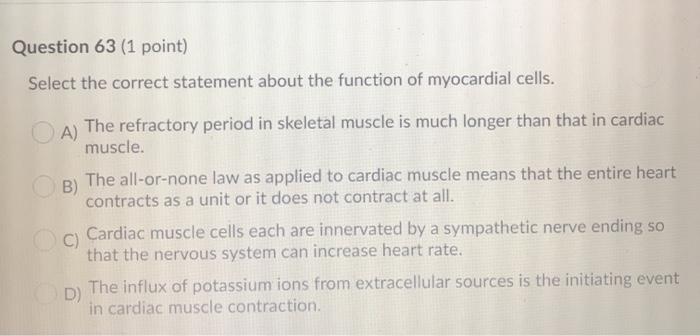Select the correct statement about the function of myocardial cells. – Myocardial cells, the workhorses of the heart, are specialized muscle cells responsible for the rhythmic contractions that pump blood throughout the body. Understanding their unique properties and functions is crucial for comprehending cardiac physiology and pathology.
Myocardial cells possess remarkable contractile properties, enabling them to generate force and shorten, leading to the contraction of the heart. This contractile function is regulated by intricate molecular mechanisms and is essential for maintaining cardiac output, the volume of blood pumped by the heart per minute.
Overview of Myocardial Cells

Myocardial cells, also known as cardiomyocytes, are the primary contractile units of the heart. They are responsible for generating the force necessary for pumping blood throughout the body. Unlike other cardiac cells, such as pacemaker cells and conduction cells, myocardial cells possess unique structural and functional properties that enable them to perform this essential role.
Contractile Function of Myocardial Cells

Myocardial cells generate force through a complex molecular process known as excitation-contraction coupling. When an electrical impulse reaches a myocardial cell, it triggers the release of calcium ions from the sarcoplasmic reticulum. Calcium ions bind to troponin, which initiates a conformational change in the troponin-tropomyosin complex, uncovering the binding sites on actin for myosin heads.
Myosin heads then bind to actin and undergo a power stroke, generating force and causing the myocardial cell to contract.
Electrical Properties of Myocardial Cells, Select the correct statement about the function of myocardial cells.
Myocardial cells exhibit unique electrical properties that enable them to generate and propagate electrical impulses. They possess ion channels that allow the selective passage of ions across the cell membrane, creating a resting membrane potential and allowing for changes in membrane potential in response to electrical stimuli.
The most important ion channels in myocardial cells are the sodium-potassium pump, calcium channels, and potassium channels.
Structural Organization of Myocardial Cells
Myocardial cells are arranged in a highly organized structure that ensures efficient contraction of the heart. They are interconnected by cell-cell junctions, including intercalated discs, which provide mechanical and electrical coupling between adjacent cells. The extracellular matrix surrounding myocardial cells contains collagen, elastin, and proteoglycans, which provide structural support and contribute to the overall mechanical properties of the myocardium.
Detailed FAQs: Select The Correct Statement About The Function Of Myocardial Cells.
What is the primary function of myocardial cells?
Myocardial cells are responsible for generating force and contracting the heart, enabling it to pump blood throughout the body.
How do myocardial cells generate force?
Myocardial cells contain specialized proteins that interact to create force and shorten, leading to the contraction of the heart.
What is the role of electrical properties in myocardial cells?
Electrical properties allow myocardial cells to generate and propagate electrical impulses, coordinating the rhythmic contractions of the heart.

